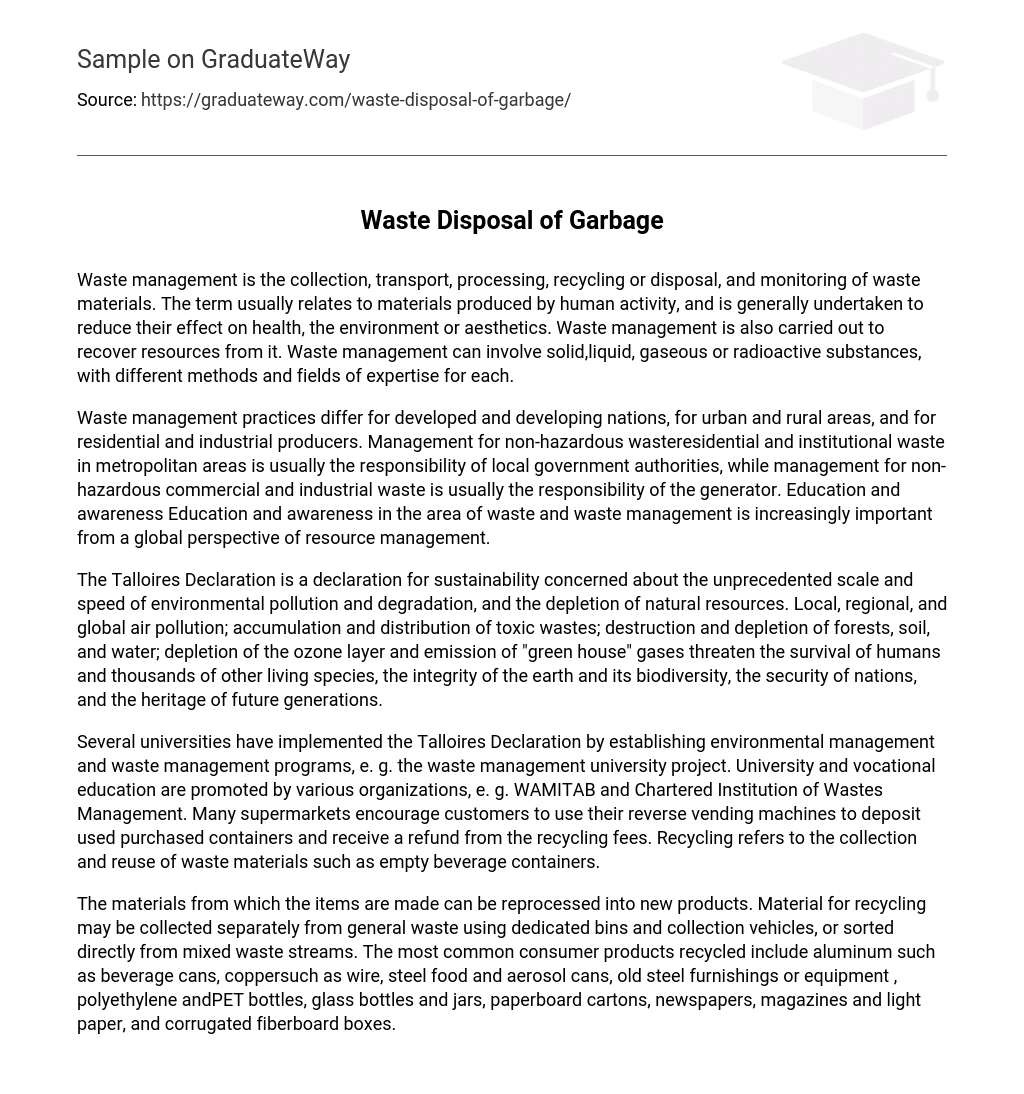Waste management is the collection, transport, processing, recycling or disposal, and monitoring of waste materials. The term usually relates to materials produced by human activity, and is generally undertaken to reduce their effect on health, the environment or aesthetics. Waste management is also carried out to recover resources from it. Waste management can involve solid,liquid, gaseous or radioactive substances, with different methods and fields of expertise for each.
Waste management practices differ for developed and developing nations, for urban and rural areas, and for residential and industrial producers. Management for non-hazardous wasteresidential and institutional waste in metropolitan areas is usually the responsibility of local government authorities, while management for non-hazardous commercial and industrial waste is usually the responsibility of the generator. Education and awareness Education and awareness in the area of waste and waste management is increasingly important from a global perspective of resource management.
The Talloires Declaration is a declaration for sustainability concerned about the unprecedented scale and speed of environmental pollution and degradation, and the depletion of natural resources. Local, regional, and global air pollution; accumulation and distribution of toxic wastes; destruction and depletion of forests, soil, and water; depletion of the ozone layer and emission of “green house” gases threaten the survival of humans and thousands of other living species, the integrity of the earth and its biodiversity, the security of nations, and the heritage of future generations.
Several universities have implemented the Talloires Declaration by establishing environmental management and waste management programs, e. g. the waste management university project. University and vocational education are promoted by various organizations, e. g. WAMITAB and Chartered Institution of Wastes Management. Many supermarkets encourage customers to use their reverse vending machines to deposit used purchased containers and receive a refund from the recycling fees. Recycling refers to the collection and reuse of waste materials such as empty beverage containers.
The materials from which the items are made can be reprocessed into new products. Material for recycling may be collected separately from general waste using dedicated bins and collection vehicles, or sorted directly from mixed waste streams. The most common consumer products recycled include aluminum such as beverage cans, coppersuch as wire, steel food and aerosol cans, old steel furnishings or equipment , polyethylene andPET bottles, glass bottles and jars, paperboard cartons, newspapers, magazines and light paper, and corrugated fiberboard boxes.





